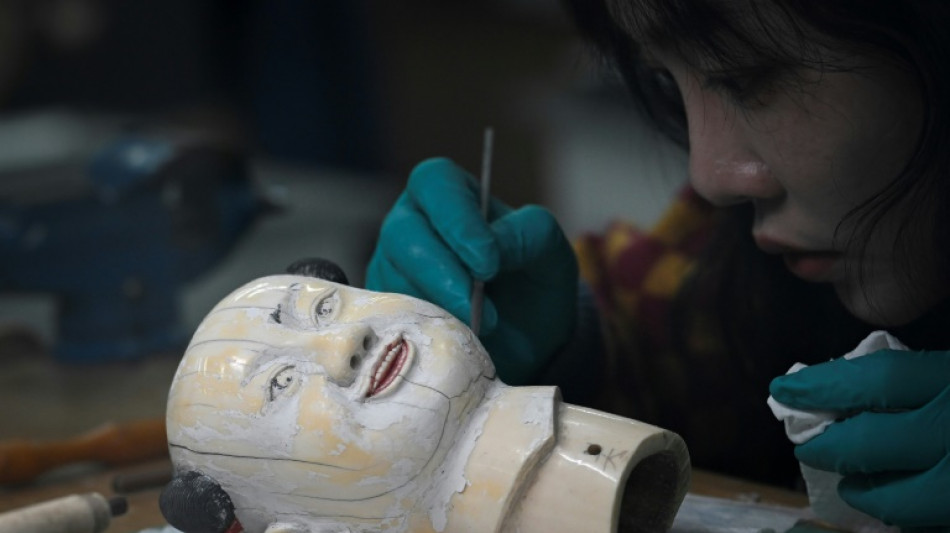
-
 German defence giant Rheinmetall to take over warship maker
German defence giant Rheinmetall to take over warship maker
-
Arab, Muslim leaders hold emergency talks after Israel's Qatar attack
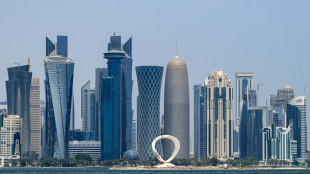
-
 Markets mixed ahead of expected US rate cut
Markets mixed ahead of expected US rate cut
-
Rubio takes up Qatar strike unease with Netanyahu

-
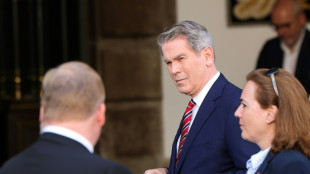 US-China trade talks resume in Madrid
US-China trade talks resume in Madrid
-
Gaza aid flotilla carrying Greta Thunberg departs Tunisia

-
 New Nepal interim ministers sworn in after protests
New Nepal interim ministers sworn in after protests
-
Cluster bombs kill, wound over 1,200 in Ukraine since 2022: monitor
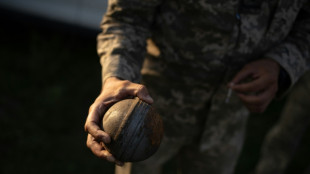
-
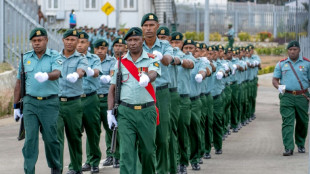 Australia, Papua New Guinea to sign 'historic' defence deal
Australia, Papua New Guinea to sign 'historic' defence deal
-
Myanmar junta says no voting in dozens of constituencies
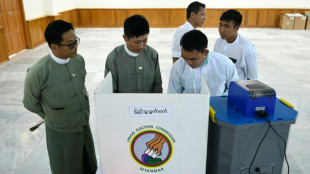
-
 Rubio to discuss Qatar aftermath, Gaza with Netanyahu
Rubio to discuss Qatar aftermath, Gaza with Netanyahu
-
Chinese factory, consumer activity slow amid economy struggles

-
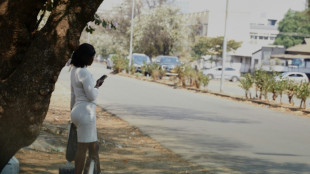 US cuts leave Zimbabwe sex workers scrambling for alternatives
US cuts leave Zimbabwe sex workers scrambling for alternatives
-
Alonso's Real Madrid revitalised for new Champions League mission

-
 Arsenal eye Champions League charge with revamped attack
Arsenal eye Champions League charge with revamped attack
-
'No regrets': wounded Nepali protesters proud at change
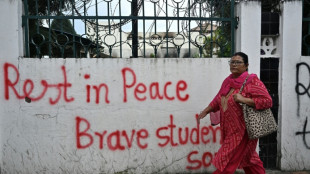
-
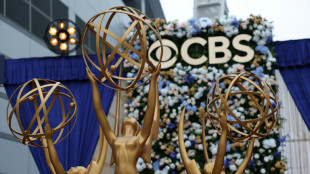 Key Emmys moments: Children, Colbert, women and politics
Key Emmys moments: Children, Colbert, women and politics
-
'No regrets': wounded Nepalis protesters proud at change
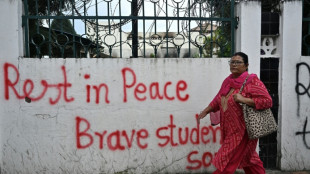
-
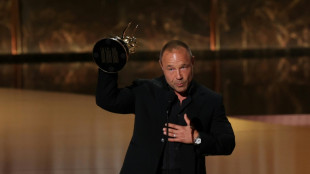 'Adolescence,' 'The Studio' dominate television's Emmy Awards
'Adolescence,' 'The Studio' dominate television's Emmy Awards
-
WTO fishing deal: the net results
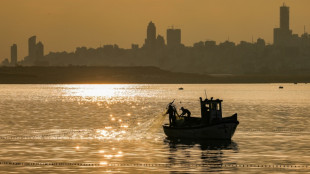
-
 Malaysia's largest island state aims to be region's 'green battery'
Malaysia's largest island state aims to be region's 'green battery'
-
Philippines president says corruption scandal protests justified
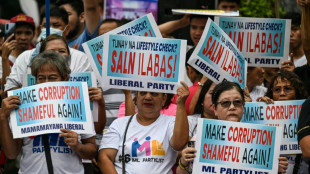
-
 Asian markets fluctuate ahead of expected US rate cut
Asian markets fluctuate ahead of expected US rate cut
-
UK aristocrat, partner face jail over baby daughter's death
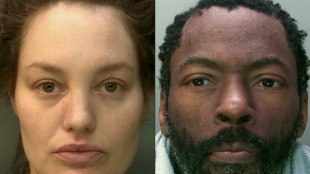
-
 Japan and Fiji cruise into Pacific Nations Cup rugby final rematch
Japan and Fiji cruise into Pacific Nations Cup rugby final rematch
-
As King Charles hosts Trump, what do UK state visits entail?
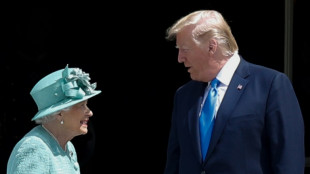
-
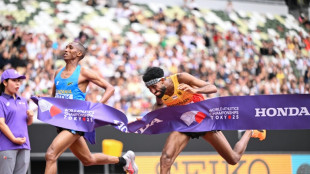 First-ever Tanzanian gold as Simbu dips past Petros in world marathon
First-ever Tanzanian gold as Simbu dips past Petros in world marathon
-
100 days later, US federal workers navigate post-Musk wreckage

-
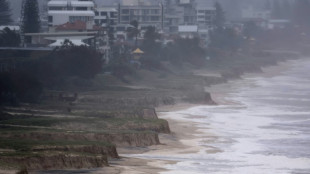 Rising oceans to threaten 1.5 million Australians by 2050: report
Rising oceans to threaten 1.5 million Australians by 2050: report
-
Kipyegon bids for fourth 1500m world gold, Wanyonyi in loaded 800m
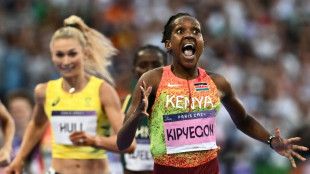
-
 'The Studio,' 'Severance' and 'Adolescence' among Emmy winners
'The Studio,' 'Severance' and 'Adolescence' among Emmy winners
-
Trump and King Charles: heads of state with opposing personalities
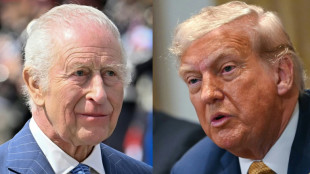
-
 Scheffler surges to PGA Procore victory in Ryder Cup warm-up
Scheffler surges to PGA Procore victory in Ryder Cup warm-up
-
Bloody Sunday trial of British ex-soldier to open in Belfast
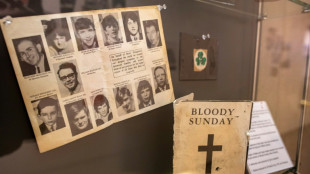
-
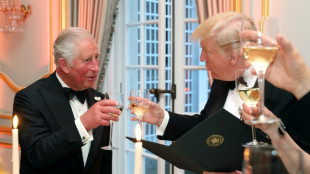 Trump heads for historic second UK state visit
Trump heads for historic second UK state visit
-
Turkey court tries case that could oust opposition leadership
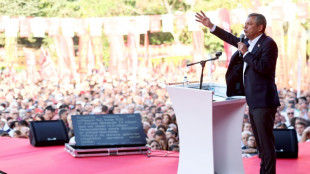
-
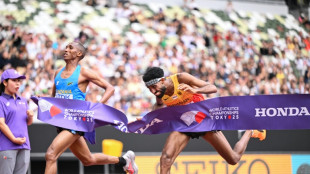 Simbu dips past Petros for world marathon gold
Simbu dips past Petros for world marathon gold
-
Mexico's macabre Island of the Dolls inspires Tim Burton and Lady Gaga
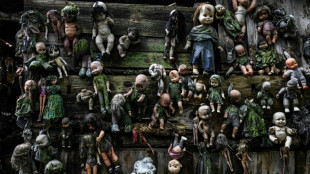
-
 Television stars shine bright on Emmys red carpet
Television stars shine bright on Emmys red carpet
-
'The Studio' claims early win as TV's Emmys kick off

-
 Japan rips Tonga to reach Pacific Nations Cup rugby final
Japan rips Tonga to reach Pacific Nations Cup rugby final
-
Australia's ANZ bank hit with record fine over 'widespread misconduct'

-
 Eagles top Chiefs in Super Bowl rematch as Cowboys edge Giants in NFL thriller
Eagles top Chiefs in Super Bowl rematch as Cowboys edge Giants in NFL thriller
-
Seattle's Raleigh hits 54th homer of season for MLB marks

-
 NFL Cowboys top Giants in overtime while Lions maul Bears
NFL Cowboys top Giants in overtime while Lions maul Bears
-
Trump concerned S. Korean arrests could 'frighten' investors

-
 Timeless Modric opens AC Milan account with winner against Bologna
Timeless Modric opens AC Milan account with winner against Bologna
-
Spring quick-fire hat-trick helps Racing stun Bordeaux-Begles

-
 Macau's first 'patriots' election sees low turnout
Macau's first 'patriots' election sees low turnout
-
Prince Harry says has 'clear conscience' over explosive memoir


Chinese treasures restored in the heart of Beijing
In a workshop tucked away in Beijing's historic Forbidden City, a restorer hunched over a centuries-old figurine, using a cotton bud to delicately clean its dusty crevices after years hidden in storage.
Only a small fraction of the 1.86 million artefacts held by the Chinese capital's Palace Museum is on display at any one time.
But as President Xi Jinping has called for stronger protection of cultural heritage over the past decade, efforts to preserve historical relics have intensified, with thousands of treasures refurbished in the hopes they will be showcased at a later date.
When AFP visited the brightly lit Forbidden City studio on a government-organised media tour last week, workers wearing latex gloves pored over their precious charges, gently dabbing and buffing to return lanterns, jade pendants and timeworn paintings to their former glory.
One restorer used a fine brush to carefully touch up a peeling, disembodied statue head, while another painted a glistening liquid over an ancient scroll from the Qing Dynasty.
"The conservator is currently repairing the edges of the mounting, specifically the floral feather materials used in its decoration," Ma Yue, head of the museum's Calligraphy and Painting Conservation section, told reporters as she gestured towards the worker.
"This restoration is typical because we need to restore each part of the materials based on the original mounting style, material structure and the degree of ageing of the colours," she added.
The opening of a new facility in Beijing this October will significantly boost the number of artefacts restored and displayed annually, according to the museum.
- Keeping time -
Hundreds of tourists lined the red walls of the museum complex last week, some dressed in traditional costumes.
In the sections open to the public, the work of the conservation teams could already be seen.
Visitors flocked through the Gallery of Clocks, stopping to admire the elaborate golden timepieces gleaming softly in the darkness.
The museum -- established in the imperial palace of the Ming and Qing dynasties after the last emperor Pu Yi and his household were evicted from the Forbidden City -- celebrates its 100th anniversary this year.
Its collection includes paintings, calligraphy, bronzeware, gold and silverware, ceramics and textiles, covering nearly all Chinese art forms from prehistoric times to the modern era.
They have faced existential threats during several turbulent periods.
Hundreds of thousands of pieces were removed from the museum in the 1930s to prevent them falling into the hands of invading Japanese troops.
Many were then transported to Taiwan by the Nationalists after they were defeated by Chinese communist forces and fled the mainland at the end of the Chinese Civil War in 1949.
The museum first set up a conservation team in 1952, recruiting craftsmen descended from the Qing dynasty's imperial workshop artisans.
But during the Cultural Revolution in the 1960s and 70s, valuable artefacts were damaged, destroyed or stolen by Mao Zedong's Red Guards, young brigades of communists who violently targeted anything or anyone deemed to be part of the bourgeoisie.
J.Marty--VB
